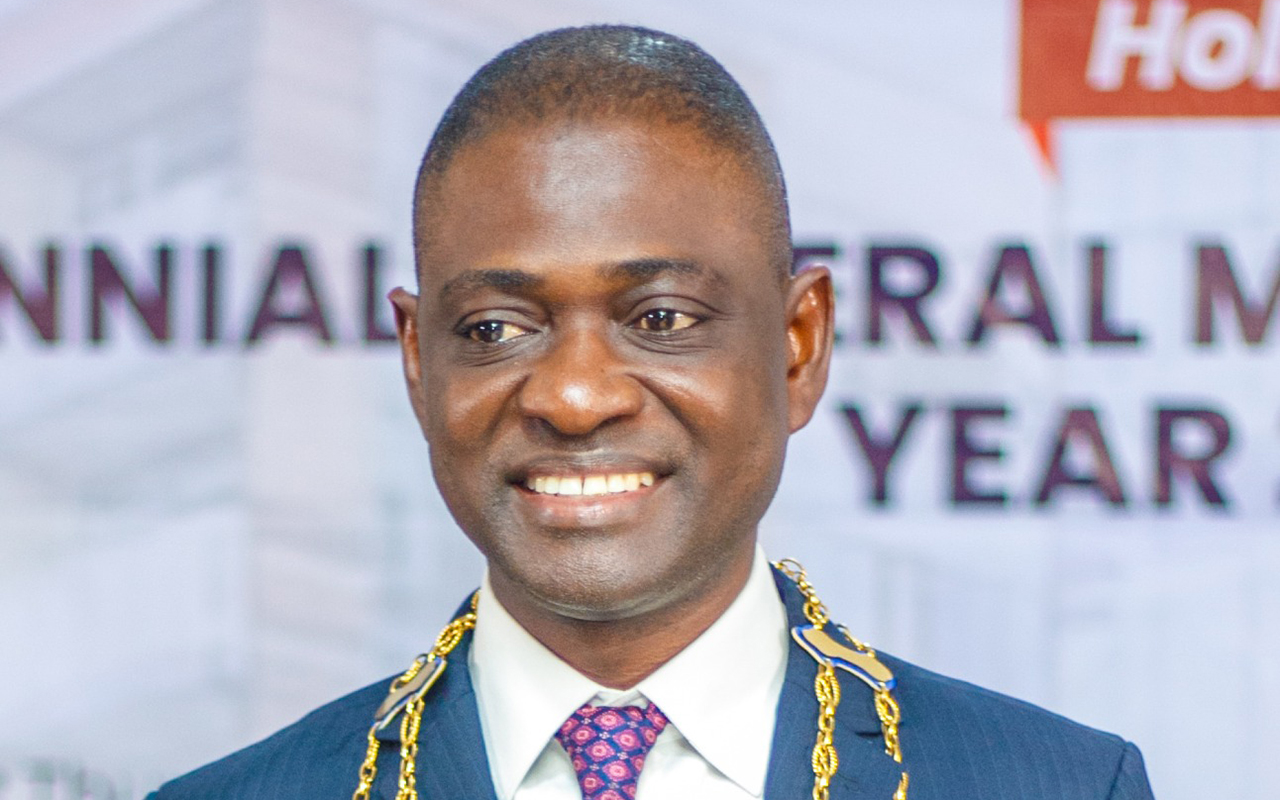 About nine years after the enactment of the Model Mortgage and Foreclosure Law (MMFL), many state governments have not domesticated its provisions to open the flank for mortgage investments in the housing sector, VICTOR GBONEGUN reports.
About nine years after the enactment of the Model Mortgage and Foreclosure Law (MMFL), many state governments have not domesticated its provisions to open the flank for mortgage investments in the housing sector, VICTOR GBONEGUN reports.
The non-adoption of the Model Mortgage and Foreclosure Law (MMFL) by state governments may be compounding the process of mortgage-backed homeownership, and inhibiting housing investments.
The law supposed to create the enabling environment for mortgage origination, but nine years after its enactment, about 32 states have failed to domesticate it, prompting property developers and mortgage investors to avoid investments in those states.
The law advocates the creation of state mortgage boards as one-stop shops for facilitating mortgage administration, property registration and title perfection processes in addition to the instituting of non-judicial foreclosure processes.
The passage of the law incentivises investment in the housing and mortgage sectors in the states with multiplier effects such as greater homeownership, jobs and wealth creation, as well as enhanced internally generated revenue.
The Guardian learnt that only Lagos, Ekiti, Nasarawa and Kaduna states have enacted their own mortgage law, while Edo, Akwa-Ibom, Cross River, Kogi, Benue, Plateau, Kebbi and Gombe States are still at various stages of passing their foreclosure law. Ogun State is awaiting the governor’s sign-off to adopt the law.
In Ekiti State, the law passed since 2020 apply to mortgages of all registrable interests in land within the state and backed by the establishment of the Mortgage Board known as the Ekiti State Mortgage Board, a corporate body with perpetual succession and a common seal capable of suing and being sued in its corporate name; and capable of acquiring, holding or disposing of any property whether movable or immovable.
In Lagos, the law backed by a mortgage board, enabled the purchase and allocation of homes through a rent-to-own scheme. Since inception of its mortgage scheme in 2014, no fewer than 20,000 residents had subscribed to the scheme.
The scheme made it easier for people with limited capital to buy and own decent homes with six per cent interest rate and tenor of ten years, as well as opportunity to exit the mortgage if full payments for property are made before the expiration of mortgage tenor.
A recent survey by the World Bank revealed that 700,000 housing units across different segments were needed yearly to keep up with housing demand, whereas production was around 100,000 units, resulting in an accumulated deficit.
While Central Bank of Nigeria (CBN) 2020 report stated that
Nigeria needs between N15 trillion to N20 trillion worth of mortgage financing to alleviate the housing gap as only about five per cent of the 13.7 million housing units are currently financed with mortgages.
With the persistent increase in non-performing loans in the Nigerian banking sector, which stood at 4.4 per cent, the mortgage sector is threatened by the difficulty of realising valuable security in the event of failure of a mortgagor to repay loan. The mortgage market has been consistently underperforming with a contribution of about 0.5 per cent to the nation’s Gross Domestic Product (GDP).
According to Dataphyte study, Nigerians rely on personal savings to pay for their homes, rather than mortgages. Since 2019 mortgage penetration continues to be low as the ratio of outstanding mortgages to GDP was 0.6 per cent in 2020 – up from 0.2 per cent in 2019 – compared to 18.9 per cent in Namibia, 16.2 per cent in South Africa, 10.2 per cent in Tunisia, 2.2 per cent in Kenya and 1.6 per cent in Ghana.
Before now, mortgages created in states in the North East, North West (except Kaduna State), North Central, as well as, the Eastern regions are regulated by the Conveyancing Act of 1881, originally an English legislation and one of the relics of our colonial history.
However, mortgages created in Delta, Edo, Ekiti, Osun, Ondo, Ogun, and Oyo states are regulated by the Property and Conveyancing Law, 1959, as passed by the respective state legislatures. In Lagos, the Mortgage and Property Law of Lagos State, 2010, regulates the mortgage landscape. Other laws and regulations, which apply to mortgages in Nigeria, include the Mortgage Institutions Act, 1989 and the Banks and Other Financial Institutions Act, 1991.
Regrettably, mortgage loans before now are usually but not always backed with certain forms of security that offer the lender a level of control, assurance of repayment, and recovery upon default but with the establishment of the Nigerian Mortgage Refinance Company (NMRC), the company led development of the MMFL for adoption across states to facilitate easy access and affordable mortgages through creation of a mortgage board.
Essentially, key provisions of the law include establishment of a mortgage registry, which empowers mortgagee to register mortgages, eliminates requirement for double consent, and introduces alternative dispute resolution for mortgage matters. The law also introduces the additional remedy of non-judicial foreclosure.
Under this model, the mortgagor may sign a deed in lieu of foreclosure conveying all interest in the mortgaged property to the mortgagee. This eliminates the difficulty associated with going to court to obtain a foreclosure order. For instance, the MMFL passed by the Kaduna State House of Assembly in 2017 provides for Non-Judicial Foreclosure in Nigeria.
This allows the mortgagee to take over the property without the court’s intervention. The merits of the law include creating an enabling atmosphere for states to provide affordable housing for their citizens by de-risking the housing and mortgage sector and unlocking its potential for economic growth.
Speaking on the passage of the Mortgage Foreclosure Law in Nasarawa State, the Chief Executive Officer, Nasarawa State Investment and Development Agency (NASIDA), Mr Ibrahim Abdullahi, said the law makes real estate investment more secure and bankable. He noted that law has assisted investors and off-takers in the state to be able to get a mortgage facility and enhance home ownership, adding that from the supply and demand side.
Former President, Mortgage Banking Association of Nigeria (MBAN), Adeniyi Akinlusi, said if the law is passed in states, more people will be able to own homes. He noted that until many Nigerians own their homes, it would be difficult to address the issue of economic disempowerment and attract capital from the banking system.
According to him, each state needs an effective law that will make foreclosure easy to attract funding and capital from the mortgage bank. “Currently, there is no effective foreclosure mechanism, if you go to court, it would take many years to recover loans. And as such, if mortgage banks find out that people who default are not paying their loans, they are not motivated to increase their loan portfolio or give more people loans,” he said.
Chief Executive Officer, Nigeria Mortgage Refinance Company (NMRC), Kehinde Ogundimu, reportedly said the law introduces a number of market-leading and practical innovations to tackle the age-long problem of difficulty in transferring interest in land and the ability of the state to generate revenue from land.
He said some of its objectives are to ensure a sound legal framework for judicial enforcement of mortgages, ease of mortgage transactions through innovative, simple and clear rules, create a non-judicial foreclosure regime, and expand capital flows to the state, as well as cash flow into the government coffers by increasing the database of registered property-owners.
He recommended that states should push for passing of the law to enable them take advantage of the benefits. The reality in states that are yet to adopt the law is that the lengthy process associated with obtaining a foreclosure order from the court, which may take up to two or three years discourages lenders from granting mortgage loans.
MBAN former Chief Executive Officer, Mr Kayode Omotoso, said that NMRC, MBAN and CBN have been in the forefront of pushing for the domestication of the law but observed that the state governors don’t want to be bound by any foreclosure law that is passed by the National Assembly because they believe that by the virtue of the Land Use Act, land are vested in the state governors.
“The model foreclosure law ensures states pass it into law and bound by it. A lot of the states have not passed it. But those states that have passed the law have provided conducive environment for the citizens to have access to mortgage at favourable terms,” he said.
Omotoso disclosed that the name has been changed to Mortgage Loan Administration as the term ‘foreclosure’ seems to scare people, adding that ‘Once people hear foreclosure, they believe you want to forcefully take over their assets. Whereas, he explained that the essence is that if someone borrows to acquire a home and fails to effect the payment up to six months, nine month or one year, then, the lender should have the opportunity to use the property to create more mortgages for others that are willing and able.
To him, once more states are able to domesticate the law, more citizens will have access to mortgage finance to acquire homes, and enable the society to create wealth, peace and prosperity.
He emphasised that if mortgage repayment is not adhered to by people, it affects the stream of mortgage creation and investment in housing. He said nations that have active foreclosure procedures and laws, acquire homes mortgages that are seamless.






